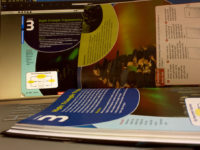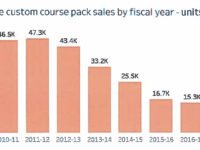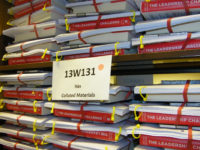This series on misleading on fair dealing has placed the spotlight on the changing state of educational copying including the significant decline in book copying as part of coursepack materials and the gradual abandonment of print coursepacks in favour of digital course management systems (CMS). Other posts in the series examined the legal effect of the 2012 reforms and the wildly exaggerated suggestion of 600 million uncompensated copies each year.
This post highlights the massive education investment in e-book licensing. The shift to e-book licensing has significant implications for the fair dealing debate since it confirms that the decline of the Access Copyright licence is not the result of institutions seeking free access, but rather the gravitation toward alternative licences that offer better value for teachers, students, and the taxpayer.











